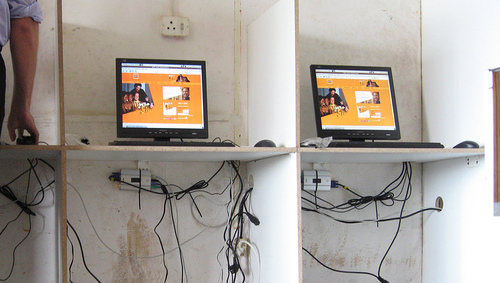The fall of Baghdad in April 2003 opened a secretive and brutal regime to outside scrutiny for the first time. The U.S. Joint Forces Command (USJFCOM) commissioned a secret comprehensive study of the inner workings and behavior of Saddam Hussein’s regime based on previously inaccessible primary sources.
In the words of the journal Foreign Affairs,
Two years in the making, the report of the “Iraqi Perspectives Project” draws on interviews with dozens of captured senior Iraqi military and political leaders and hundreds of thousands of official Iraqi documents from all levels of the regime, and is destined to rewrite the history of the war from the ground up. Excerpts from the report itself are presented exclusively in a special double-length article from the upcoming May/June issue of Foreign Affairs.
Highlights include:
Full, fascinating, text here.
A couple of striking passages:
A 1982 incident vividly illustrated the danger of telling Saddam what he did not want to hear. At one low point during the Iran-Iraq War, Saddam asked his ministers for candid advice. With some temerity, the minister of health, Riyadh Ibrahim, suggested that Saddam temporarily step down and resume the presidency after peace was established. Saddam had him carted away immediately. The next day, pieces of the minister’s chopped-up body were delivered to his wife. According to Abd al-Tawab Mullah Huwaysh, the head of the Military Industrial Commission and a relative of the murdered minister, “This powerfully concentrated the attention of the other ministers, who were unanimous in their insistence that Saddam remain in power.”
And this…
Fear of Saddam’s reaction to bad news was not limited to his ministers and soldiers. Its pernicious effects reached even into Saddam’s immediate family. One former high-level official related the following story about Qusay:
At the end of 2000, it came to Saddam’s attention that approximately seventy military vehicles were immobile. Saddam told Qusay to resolve the problem. Republican Guard mechanics claimed they could repair the vehicles if the funds were made available. Qusay agreed to the work, and funds were provided for the task. Once the work was completed, Qusay sent a representative to inspect the vehicles and he found them lined up on a vehicle park, thirty-five vehicles on each side. The vehicles looked like new, having been freshly painted and cleaned.
After Qusay’s representative inspected them, a second inspection was conducted to verify that they were now operational. The staff was told to supply drivers to move all [the] vehicles to the opposite side of the vehicle park to ensure they were in working order. None of the seventy vehicles would start. When this was reported to Qusay, he instructed that Saddam not be informed, as Qusay had already told Saddam that the vehicles were operational.
In the end, Qusay did not order mechanics to fix the vehicles — it appears that he was eager only to hide this failure from his father.

